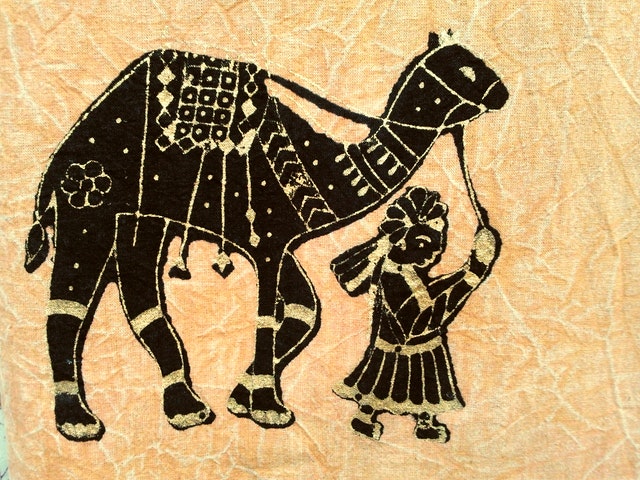Podcast: Play in new window | Download (Duration: 11:17 — 10.9MB) | Embed
Subscribe to the Healthcare Beans Podcast: Apple Podcasts | Spotify | RSS | Subscribe via..
Episode #3 of the Healthcare Beans podcast
In this episode, I argue against putting too much faith in good doctors. I know that sounds strange but a well organized care team is what really counts, and this is what people should expect from their local health system.
I stress the importance of organized care delivery by sharing a story about my 73 year-old uncle who suffers from multiple chronic diseases. He recovered from a COVID-19 infection back in September 2020, after being treated with Dexamethasone. He had a great doctor but his care team dropped the ball.
And when it comes to finding a new doctor, I think healthgrades is a good site to explore. But make sure you read the full profile – the bad stuff is often tucked away at the bottom of a profile.
Subscribe to my podcast or check out my site’s episode list if you’d like to learn more about US health systems and value-based healthcare.
~ James
Transcript
Hello healthcare enthusiasts and thanks for tuning into the Healthcare Beans podcast, I’m your host James Haven. This is the 3rd episode in the podcast, and we’re still laying out the fundamental knowledge on healthcare and health systems, and what people should be aware of in order to understand and navigate this complex system.
So onto the big question for today – “what exactly is good healthcare?”. And I pose this question for a reason, it is to help people put down a very common, simplistic and ultimately wrong idea of what good healthcare is. Many, many people think good healthcare is all about having a good doctor, and this is NOT true. And I’m going to share a brief story that I think will convince you not to put your full trust in a good doctor.
I’d like to share a story about my uncle. He’s 73 years old with chronic liver disease; he underwent a triple bypass heart surgery about 2 years ago, and struggles to maintain a healthy blood pressure. He’s certainly not in good shape, but my aunt takes great care of him, staying on top of all his medications and his diet – so he’s pretty lucky in that respect. And to be fair he lived much of his life on his own terms, eating and drinking whatever he wanted; and ignoring exercise. Back in August, my uncle contracted COVID-19. We were surprised to hear this because he and my aunt were social distancing in a small apartment in CT, but social distancing is not a guarantee that you won’t get sick. And as expected, my uncle developed the usual symptoms: high fever, aches, and difficulty breathing.
Now it’s common knowledge that COVID-19 is very serious for the elderly, especially older people with chronic disease. So we had zero faith that he would ever leave the hospital; our concern was making sure my aunt felt supported and getting ready to help make funeral preparations. He spent about 8 days in the hospital, and during that time the doctor would keep in contact with my family every day, letting us know how he’s doing, because (of course) we could not visit him ourselves; answering our questions, and making sure he’s getting the care he needs. She (the doctor) treated him with a steroid, Dexamethasone, and he started feeling better pretty quickly where each day was better than the previous day. If you haven’t heard of this drug, definitely look it up, the findings are very positive (doctors are using this drug in combination with other drugs) – all the major news outlets are reporting on it; again, it’s called dexamethasone and I have a link in the show notes so you could click on that and learn more about it.
I can’t say enough good stuff about this doctor, she was super-responsive, compassionate and brought my uncle back from the brink of death. There was even an incident where the hospital (someone from nursing administration) tried to discharge him early, at around 5 days, and we were concerned about that timing, we thought it was too short, so we discussed that with his doctor, and she decided to keep him inpatient for 3 more days. She was just fantastic.
Now, here’s where things go south for my uncle. Come the day of his discharge, he was brought down to the lobby in a wheelchair, someone walked him outside, and that was it. My aunt wasn’t notified, nobody called to give us a heads up. There was NO discharge planning. They gave him a mask and told him to walk home, which was 4 blocks away. So he started walking, and after 2 blocks, he began to feel dizzy. By the time he got home, he was very dizzy and very sweaty, and he had even defecated on himself. Just an awful experience for him. And I kept thinking – how could this happen after hearing about how awesome his doctor was. What if my uncle lived 6 blocks away instead of 4, would he have collapsed on his way home, maybe even died? Who knows!?
The truth is that there are many people involved in delivering good care to my uncle. It’s not just the doctor, it was never just one doctor, even when that doctor happens to be awesome in all respects.
Good healthcare absolutely depends on an organized health system. Good healthcare is having a solid care team, where everyone knows their role on the team, and plays their part without fail. It’s about seamless communication, where all of your doctors and the nursing staff, the care management staff, discharge planners are sharing the right information about you, and at the right time. Last but never least, good healthcare depends on data; and that means it needs to be collected accurately, it should be up-to-date, and your data must be accessible to everyone on your care team.
Now, I certainly do not mean to downplay the importance of a good doctor. A good doctor is our connection point to the health system. We build a rapport with that doctor and that helps us build trust in our local health systems. But we have to appreciate the complexity of healthcare delivery, and that includes disease prevention programs, emergency care, hospitalizations, post-acute care, and how all the nurses and care management staff impact our experiences in these settings.
Alright, here is the main takeaway for this episode – if we don’t put our full trust in a good doctor then what should we be looking out for -> Definitely keep an eye out for disorganized staff; for example: “is anybody on your care team forgetting important details on your health condition”, “did someone from your doctor’s office actually call you when they said they would”, “Did the drug prescription order reach the right pharmacy and on time”, “are you filling out the exact same paperwork during consecutive visits with your doctor” (this is clear red flag of a broken data system)
And be prepared to find a new doctor (new clinic, new hospital) if you find lapses in how your care is delivered; remember, even if you like your doctor, do not tolerate disorganized care – it’s not worth the risk. You can always find a good doctor through recommendation websites like HealthGrades or simply ask your friends for a recommendation.
And for my last point today, whenever your going through these doctor recommendation websites or apps, like HealthGrades, always review the full profiles. You can easily find a doctor with a great overall satisfaction score, who also has serious disciplinary actions in his/her record. And its’ quite easy to miss this information when using a mobile device because the bad stuff is often tucked away at the bottom of the profile page, which means you have keep scrolling and scrolling to get down to it. So do yourself a favor and read the full profile when deciding on a new doctor.
As always, thank you for listening to the Healthcare Beans podcast, please leave a review and share your thoughts. Also check out the show notes for this episode on www.healthcarebeans.com – I include some links if you want to dive deeper into this episode’s background content. I’m your host James Haven, signing off. Best wishes & god bless.





